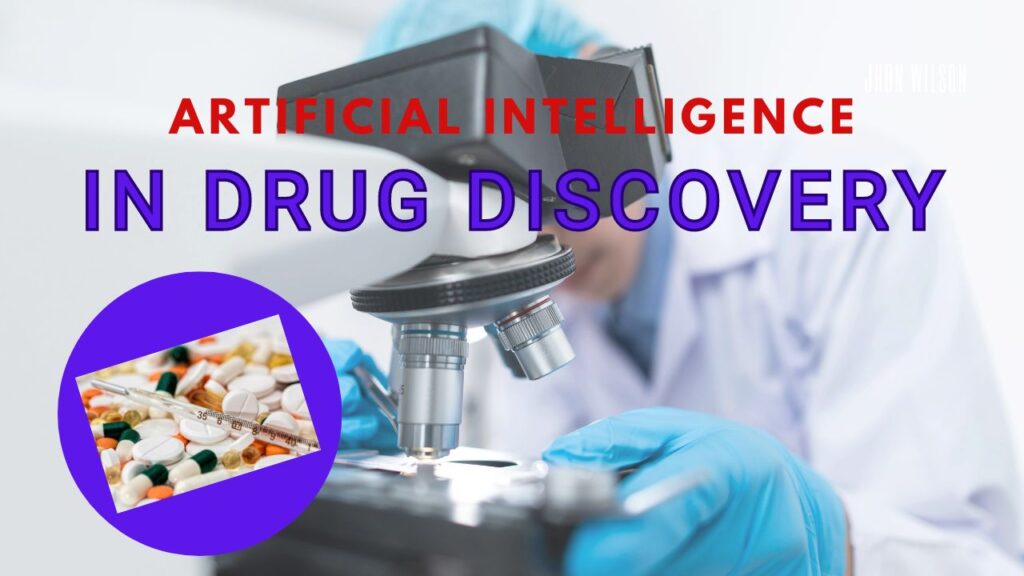Artificial Intelligence in drug discovery is transforming the healthcare sector. The recent growth in India’s drug discovery and pharmaceutical sectors is remarkable, as we witness the expansion of drug discovery development globally.


AI is transforming the healthcare sector, and one of the arenas is drug discovery, which has proven to be very beneficial. Traditional methods of discovering a new drug for an illness depend on trial and error, which is laborious and expensive, and the result could be either a new drug that is ineffective or has severe side effects. This is where AI enters to create swifter and more effective therapies over time that are changing the drug discovery landscape. It helps to streamline this whole process in a fast and precise way by using automation for the completion of tasks, analyzing large quantities of data, or suggesting novel approaches. It accelerates the path from bench to bedside, from target identification to clinical studies.
One of the biggest challenges in drug discovery is identifying promising compounds. Using artificial intelligence algorithms, it can identify hidden patterns and connections, which may lead to new drug targets or suggest alternative combinations of existing medicines. In order to predict which compounds will be effective, machine learning algorithms can analyze vast amounts of data from past research, medical studies, and patients’ records. This will allow scientists to focus their efforts on the most promising drugs, saving time and resources in this process.
In addition, artificial intelligence is changing the way drugs are designed. It analyzes the structure and behavior of thousands of molecules at the same time, suggesting new configurations that could enhance potency and selectivity and reduce side effects. This allows for the rapid development of more targeted and personalized therapies. Furthermore, machine learning models are capable of analyzing complex biological systems and providing new ways to interact with them.
The potential benefits of AI in accelerating drug discovery and improving patient outcomes are undeniable. Companies are bringing drugs to market faster and at a lower cost, giving patients access to innovative treatments sooner. As AI technology progresses, we anticipate further remarkable discoveries in the future. Along with its benefits, AI also encounters some challenges. It is crucial to tackle ethical issues, like the possibility of AI algorithms being biased and the necessity of being transparent. Other data difficulties include growth, diversity and scale. Moreover, it is essential to use AI tools responsibly and guarantee that they do not jeopardize patient safety.
AI has the potential to read different stages of drug discovery effectively which includes drug design, chemical synthesis, screening of a drug, polypharmacology and repurposing. Using the advanced ability of AI to process huge amounts of data, we can solve some of the hardest health problems faced today and bring optimism to many people. Leading companies such as Peptris, Acubiosy, NATCO Pharma, DPHS India, Sanopeutics, Prescience Insilico, and Sai Life Sciences are some of the well-known firms in India that take part in the process of finding new drugs.
Peptris is focused on leveraging AI for drug research, with a strong emphasis on rare diseases, cancer, and inflammation, while Acubiosys focuses on creating natural, cost-effective medications for severe illnesses, aiming to mitigate the adverse effects of synthetic drugs.
NATCO Pharma is a company that specializes in creating new drugs for diseases that have no cure by using advanced methods of research and development, while another company, DPHS India, known for its superior pharmaceutical products, covers a wide range of medical needs, and for its expertise in conducting clinical trials and advancing medical innovation. Prescience Insilico, a cutting-edge technology firm, uses AI and machine learning to expedite the process of discovering and developing new drugs and materials. Meanwhile, Sai Life Sciences is a reliable partner for small-molecule drug discovery, assisting biotechnology and pharmaceutical companies in India to speed up their drug development process from finding a potential drug to launching it. All these companies offer innovative solutions and instill hope in the healthcare industry.
The influence of AI in the pharmaceutical industry extends beyond India with groundbreaking advancements in drug discovery and development happening worldwide. For instance, Atomwise utilized its deep learning AI model to screen potential drug candidates for Ebola. Similarly, Turbine.AI developed an AI system capable of identifying optimal drug combinations to target specific tumor types and biomarkers. Additionally, Insilico Medicine has leveraged its AI platform to discover and advance promising drug candidates for treating idiopathic pulmonary fibrosis.
Also read: What is an adverse drug reaction (ADR)?
The recent growth in India’s drug discovery and pharmaceutical sectors is remarkable, as we witness the expansion of drug discovery development globally. With a diverse range of pharmaceutical companies excelling in high-quality, proprietary drug discovery and providing innovative solutions, India is making significant contributions to the drug development pipeline worldwide and opening opportunities for various business opportunities, including logistics, knowledge exchange, and intellectual property in the healthcare industry.


Dr. Arpita Goyal
Yale Scholar











